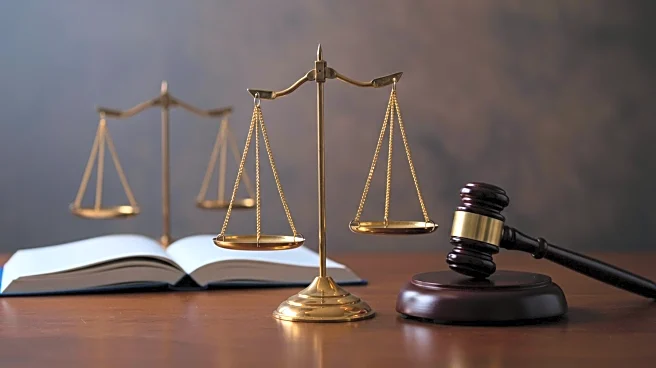What's Happening?
The Federal Trade Commission (FTC) has been barred from enforcing a civil investigative demand on Media Matters for America, following a federal judge's decision to reject the government's request to stay her previous ruling. U.S. District Judge Sparkle L. Sooknanan determined that the FTC's actions likely constituted retaliatory conduct, infringing on First Amendment rights. The investigation was part of a probe into an advertising boycott of Elon Musk's platform, X, after Media Matters published a report on antisemitic posts appearing alongside major brand advertisements. The FTC argued that the judge's ruling hindered its ability to assess whether Media Matters possessed relevant information concerning potential antitrust violations. The commission, now entirely composed of Republicans following President Trump's removal of two Democrats, sought to continue its investigation despite the judge's injunction.
Why It's Important?
This ruling underscores the tension between government regulatory bodies and organizations engaged in public debate and newsgathering. The decision highlights concerns about potential government overreach and retaliation against entities exercising free speech. The FTC's investigation into Media Matters, a progressive watchdog group, raises questions about the balance between regulatory enforcement and constitutional protections. The halt in the investigation may impact the FTC's ability to pursue antitrust violations related to advertiser boycotts, potentially affecting the advertising strategies of major companies and their relationship with social media platforms. The case also reflects broader political dynamics, with the FTC's composition shifting under President Trump's administration.
What's Next?
The FTC may appeal Judge Sooknanan's decision, seeking to overturn the injunction and resume its investigation into Media Matters. The outcome of any appeal could set a precedent for how similar cases involving free speech and government investigations are handled in the future. Media Matters and other organizations may continue to monitor and report on content issues on platforms like X, potentially influencing advertiser decisions and platform policies. The case may also prompt discussions among lawmakers and civil society groups about the role of government in regulating speech and media activities.
Beyond the Headlines
The case raises ethical and legal questions about the government's role in regulating speech and the potential chilling effect on media organizations. It highlights the importance of safeguarding constitutional rights while balancing the need for regulatory oversight. The investigation's focus on advertiser boycotts also touches on the power dynamics between media platforms, advertisers, and watchdog groups, influencing how content moderation and advertising policies are shaped.









